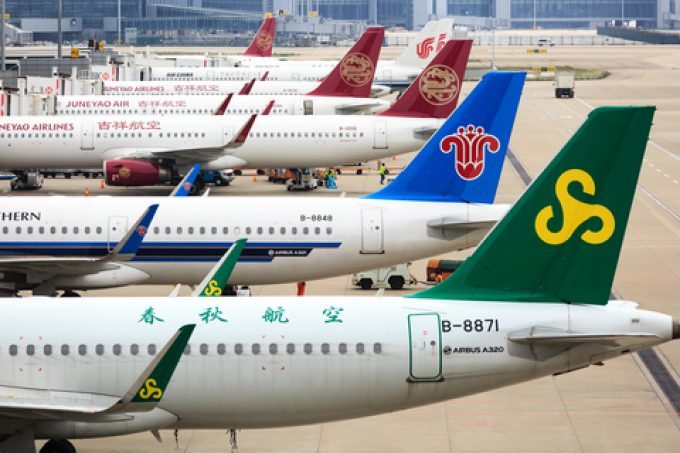
If China cancels flights to the United States, will it affect trans Pacific transport capacity?
As freight forwarders predict that the air freight peak season will come in September, the cancellation of passenger flights between China and the United States may affect trans Pacific transport capacity.
Last week, the US government suspended 26 flights of Chinese airlines to China in response to the Chinese government's cancellation of American airlines' flights due to COVID-19 cases.
The affected Chinese airlines include Xiamen, Air China, China Southern Airlines and China Eastern Airlines, while American airlines include American Airlines, Delta Airlines and United Airlines.
A freight forwarder in Shanghai said that if China responded by canceling flights to the United States, the decline in capacity might have a greater impact on the freight market after the summer off-season.
He said: "We assume that the air transportation in September may be very challenging for the U.S. market, because most of the flights of American and Chinese airlines may be canceled. On the whole, the market for outbound goods recently sent to the EU and the United States is quite stable. This week, the freight from PVG (Shanghai) to Europe began to rise, and it is not yet determined whether it will be a temporary rise or will last longer."

In fact, according to Dimerco, Asia's air transport market has been "stable" in the summer, but it also predicts that the market will rebound next month.
The freight agent said: "The freight from Southeast Asia to the United States and Europe is stable, but it is expected to rise next month, because more passenger luggage occupies the freight capacity, and the traditional peak season is coming."
However, Dimerco said that because of the continuous decline in exports, China's air transport market is "weak, and freight rates are falling, even if flights to the United States and Europe are canceled, there will not be much change".
He added: "As China's heat wave subsides and Huawei's Mate 50, iPhone 14 and other new technology products are launched in September/October, this may indicate that the peak season will start around the third week of September."
Despite the "weakness" of air transport in summer, WorldACD pointed out in its latest analysis that the market may simply revert to the previous specifications of Covid. It said: "This year's demand is similar to that before the COVID-19 epidemic, but the difference is that we are actually experiencing a normal seasonal summer idle period, rather than the continuous demand and capacity shortage in the previous two years."
In addition, WorldACD said that the "abnormal" sales performance from North Asia last year distorted the data to some extent. For example, the analyst has recorded a negative growth rate worldwide since March, including - 11% in July, but the sales volume in North Asia is still only 1% lower than that in 2019.
It added: "Other reasons for the relative decline in sales in North Asia this year include work stoppages related to COVID-19 in some parts of China, interruptions and sanctions related to Russia's invasion of Ukraine, relative easing of maritime congestion, and some weak confidence of consumers and enterprises."










Leave A Comment